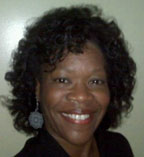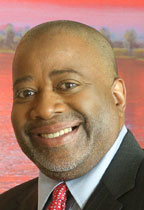
 Few Blacks Elected State Prosecutor
Few Blacks Elected State Prosecutor
Seth Williams, Philadelphia pro-secutor.
By Jazelle Hunt, NNPA Washington Correspondent
WASHINGTON, D.C. (NNPA) – Of the 46 states that elect prosecutors, more than half – 27 – have no known African Americans, according to a report by the Women Donors Network, an organization of progressive women philanthropists and advocates, which examined the demographics of state prosecutors who had been elected into their positions as of summer 2014.
“The whole thing honestly is so shocking,” says Brenda Choresi Carter, director of the Reflective Democracy Campaign. “Just the stunning absence of Black prosecutors even in states where we know there is a historic and well-developed Black electorate…came as a surprise.”
The study, which is part of the organization’s Reflective Democracy Campaign, was unable to verify the race and gender of 165 elected state prosecutors. White people account for 95 percent of the verified ranks (79 men, 16 percent women). In some states, including Tennessee and Washington, there are no elected prosecutors of color.
State prosecutors’ offices investigate crimes and are the highest criminal prosecutors in their cities, counties, or other municipalities. They are often the ultimate decision-makers in a wide range of criminal proceedings, from charges, to sentencing, to appeals and parole.
Compounding the problem is that the legal profession is one of the least diverse professions in the U.S. Whites are 88.1 percent of all lawyers, compared to 4.8 percent who are Black, 3.7 percent Latino and 3.4 percent Asians. Seventy percent are males. By comparison, whites are 81 percent of architects and engineers and 72 percent of physicians and surgeons.
“The irony of the prosecutor is that in many ways they have more direct power over people’s lives than most other elected offices. All the points along the process of pursing a [criminal] case… are subject to a prosecutor’s own individual discretion,” Carter says.
“If these [powers] are concentrated in the hands of a demographic group that does not have the experience being a person of color in America, or a woman…it’s difficult to see how they would understand the full range of the impact of their decisions.”
Nobody has to explain that to Philadelphia’s R. Seth Williams, who became the first Black elected district attorney in the state of Pennsylvania in 2009. It’s an unusual position for a Black man, but one he says more people of color should consider.
“People think if you are a member of a minority group you should be a defense attorney, but as a state prosecutor I have much more power than a defense attorney,” he explained.
“I cannot charge [someone] or not pursue the death penalty, I can get drug programs started for those who need it, I can create veteran offenders programs…. A district attorney has the power and discretion to do the right thing.”
Williams is one of just 62 Black elected state prosecutors across the country, out of 2,444 total – less than 3 percent.
One of Williams’ proudest, and most controversial actions was becoming the first D.A. in the country to successfully prosecute a Catholic clergy member in connection to the sex abuse scandal. He has also prosecuted white-collar criminals, and has reduced the number of criminal charges filed in small drug-related cases. His goal is to be smart on crime, not just tough – even if it means ruffling feathers.
“I wanted to show that we’d apply the same standard of justice to everyone, regardless of your last name, who your father is, the zip code you live in, or what your race is,” he says, adding that his office pursued people from all walks of life, “not just going after the corner boys for selling bags of weed.”
While most state prosecutors are hired or appointed, the Women Donors Network study focused on those elected because they theoretically represent voters. In these cases, aspiring prosecutors must run a political campaign; but the study points out that 85 percent of incumbent prosecutors run unopposed for their reelections. Carter says a lack of financial, social, and political access perpetuate an “old boys’ club” in government.
“There is a real issue with the fact of access to the ballot…. There are people who will never even run for office, or be in state government, or be a state judge because they cant afford it, not because they aren’t good or don’t have brilliant ideas. They don’t have access to the money, the donors, the ballot the same way others do,” she explained.
“What we see in elected offices overall is that it’s a pretty closed system. What we see with prosecutors is all of that plus more.”
Williams agrees.
“We need many more concerned, caring, empathetic, outstanding attorneys to become state prosecutors. We also need people who better reflect the communities we serve, to become prosecutors.”





Be the first to comment